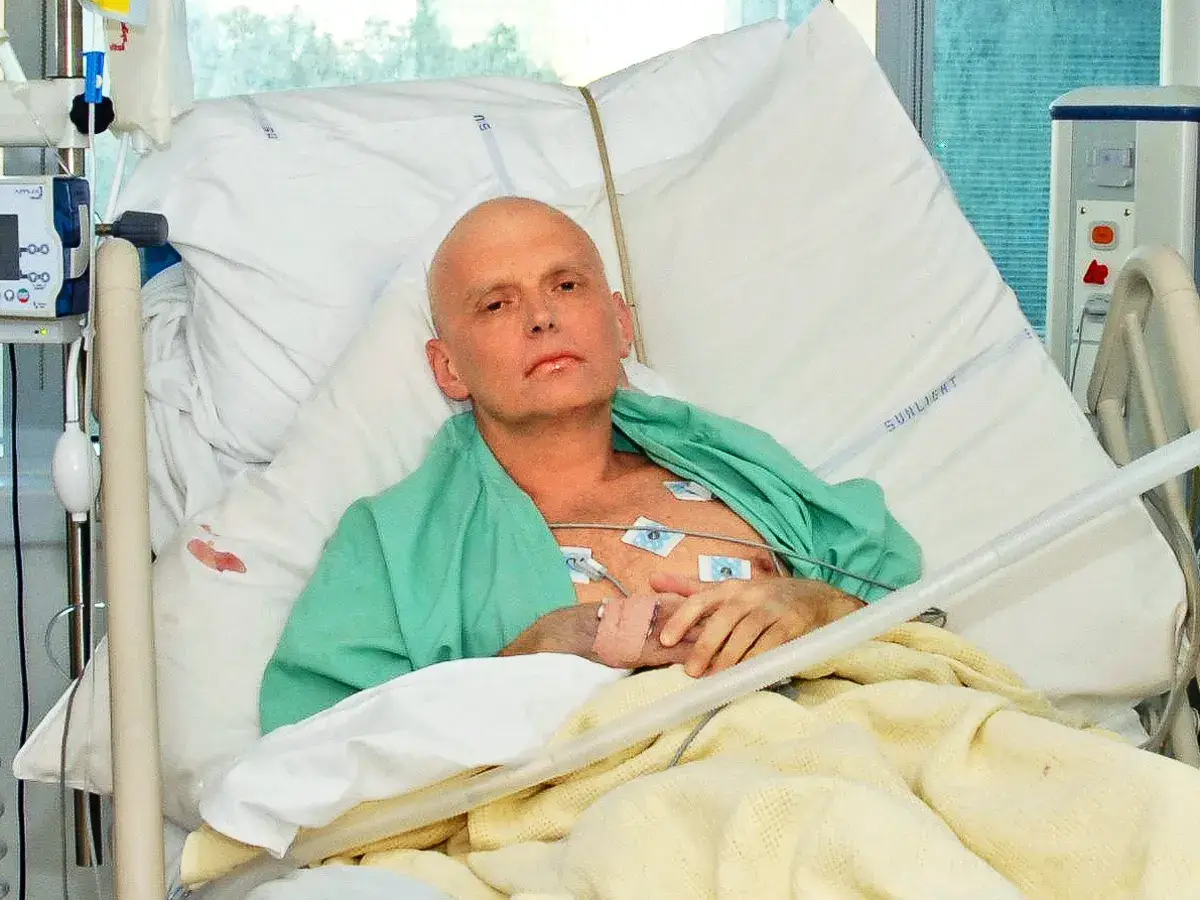Alexander Litvinenko Murder – “The Real Blacklist, Russian Spy” is an episode of the long-running investigative journalism series “Dateline NBC” that delves into the chilling and mysterious death of Alexander Litvinenko – a former Russian spy. The show delves into the events surrounding Litvinenko’s passing, the key players involved, and its international repercussions.
Alexander Litvinenko was a former officer of the Russian Federal Security Service (FSB) and KGB who became an outspoken critic of Russian government policy, particularly then-President Vladimir Putin. In 2006, Litvinenko fell ill while living in exile in London but succumbed to acute radiation poisoning on November 23, 2006.
The investigation into his death garnered international attention and severely tested diplomatic relations between the UK and Russia.
On “Dateline,” the show’s reporters dive deep into the case, interviewing key figures, experts, and witnesses to provide insight into what led up to Litvinenko’s poisoning and its geopolitical repercussions. They examine possible motives behind the murder, suspects involved, and obstacles investigators faced in trying to bring those responsible to justice.
The murder of Alexander Litvinenko remains a landmark case in the history of espionage and international relations. It serves as a reminder of the risks faced by those who dare speak out against powerful governments and how far some will go to silence their critics.

Alexander Litvinenko Murder
Alexander Litvinenko, born Alexander Valterovich Litvinenko on August 30, 1962, in Voronezh, Russia on August 30th, was a former Russian spy and prominent critic of the Russian government. He began his career with KGB (Soviet Union’s security agency) during the 1980s before joining its successor organization – Federal Security Service (FSB) – during which time it gained influence throughout Russia.
Litvinenko became disillusioned with the FSB due to its alleged corruption and criminal activities. In 1998, he publicly accused his superiors of ordering Boris Berezovsky’s assassination – a Russian oligarch and political figure. This act of defiance led to his arrest, dismissal from the FSB, and eventual acquittal on charges related to abuse of office.
Litvinenko fled Russia in 2000, seeking political asylum in the United Kingdom. While away, he became a vocal critic of both the Russian government and President Vladimir Putin. He authored multiple books, including “Blowing Up Russia: The Secret Plot to Bring Back KGB Terror,” which accused Moscow of orchestrating terrorist acts within their borders to consolidate power.
On November 1, 2006, Litvinenko became suddenly ill after meeting two former Russian agents – Andrei Lugovoi and Dmitry Kovtun – at the Millennium Hotel in London. He was hospitalized and eventually died from acute radiation poisoning caused by ingesting radioactive isotope polonium-210. However, some believed this to have been a targeted assassination attempt by Russia itself, which they have always denied involvement in.
Litvinenko’s death became an international scandal, fueling tensions between the UK and Russia. A 2016 UK public inquiry concluded that Litvinenko’s murder had been “probably approved” by then-Russian FSB director Nikolai Patrushev and President Vladimir Putin. This incident serves as a stark reminder of the dangers faced by critics of powerful governments and methods used to silence dissent.
Who Killed Alexander Litvinenko and Why?
On November 23, 2006, Alexander Litvinenko was fatally poisoned with the radioactive isotope polonium-210 at the Millennium Hotel in London. British authorities identified two Russian agents – Andrei Lugovoi and Dmitry Kovtun – as the main suspects in this incident. Lugovoi and Kovtun had met with Litvinenko during a meeting at Millennium Hotel on November 1st, where it is believed they slipped the polonium-210 into his tea during that meeting.
The British government sought the extradition of Lugovoi and Kovtun from Russia for trial in the UK. Still, Russia refused the request because its constitution prohibits the extradition of citizens. Instead, Russia offered to hold the trial within its borders – an offer that the UK declined.
In 2016, a public inquiry conducted in the UK concluded that Alexander Litvinenko’s murder had been “probably approved” by then-Russian FSB director Nikolai Patrushev and President Vladimir Putin. This finding, together with reports of Lugovoi and Kovtun’s involvement, has fuelled widespread suspicion that either the Russian government or elements within it orchestrated Litvinenko’s assassination.
However, it is essential to note that Russia has consistently denied any involvement in Litvinenko’s death and dismissed the findings of the UK public inquiry as politically motivated.